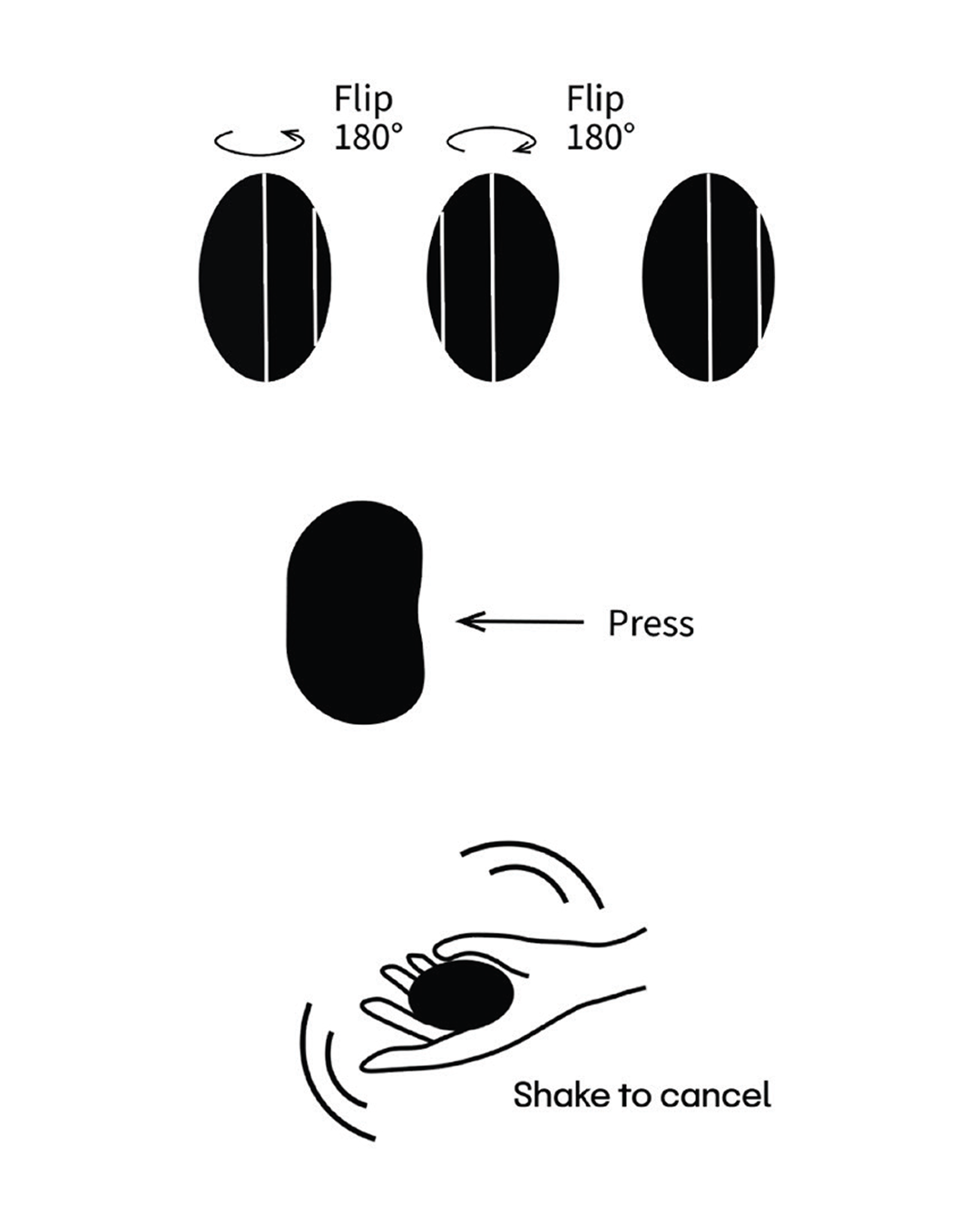Wanlun Ding & Jiayi Liu
MDes 2024
Reimagine Emotional Support in Cancer Care
Introduction
In cancer care, emotional communication often falls short. Patients feel isolated, while caregivers struggle to interpret unspoken needs. The emotional weight of illness, layered with guilt, fatigue, and shifting self-perceptions, makes open dialogue difficult, even among close relationships. Pebbi explores how technology can mediate these delicate dynamics through gentle, patient-led communication tools that respect autonomy, preserve dignity, and nurture empathy.
How might we support emotional connection in cancer care while honoring individual boundaries and emotional complexity?

Pebbi introduces a wearable-and-app system designed to support non-verbal, intuitive, and low-pressure emotional interactions between patients and caregivers. Drawing from affective computing, patient-centered design, and ambient interaction models, the system enables users to express emotional states, track fluctuations, and receive gentle affirmations, all without demanding verbal expression or face-to-face confrontation.
Final Design

At the core of the system is the Pebbi wearable, a compact, biocompatible device that records emotional inputs through gentle pressure, haptic cues, and voice journaling. These logs are visualized in the Pebbi companion app, creating a shared emotional map that both patients and caregivers can access asynchronously. The system supports a unique “pebbling” interaction: caregivers can send ambient light and vibration signals to patients, conveying presence and care without words.
- Emotional Logging: Patients record emotions through gentle squeezes or voice entries. The device offers confirmation via lights and vibration, enabling reflection without immediate dialogue.
- AI-Assisted Insights: Logged data is translated into emotional patterns, helping caregivers respond appropriately offering space, comfort, or active presence when needed.
- Caregiver Pebbling: Remote loved ones can send subtle, customizable “pebble” signals, providing lightweight emotional contact and acknowledgment, especially during recovery or moments of vulnerability.
- Tactile Meditation Support: Patients can launch guided meditation sessions through the app, with synchronized light and vibration patterns offering grounding cues for emotional regulation.
Together, these features redefine the role of technology in emotional care not as a monitor or mediator, but as a compassionate companion.
Full listing



